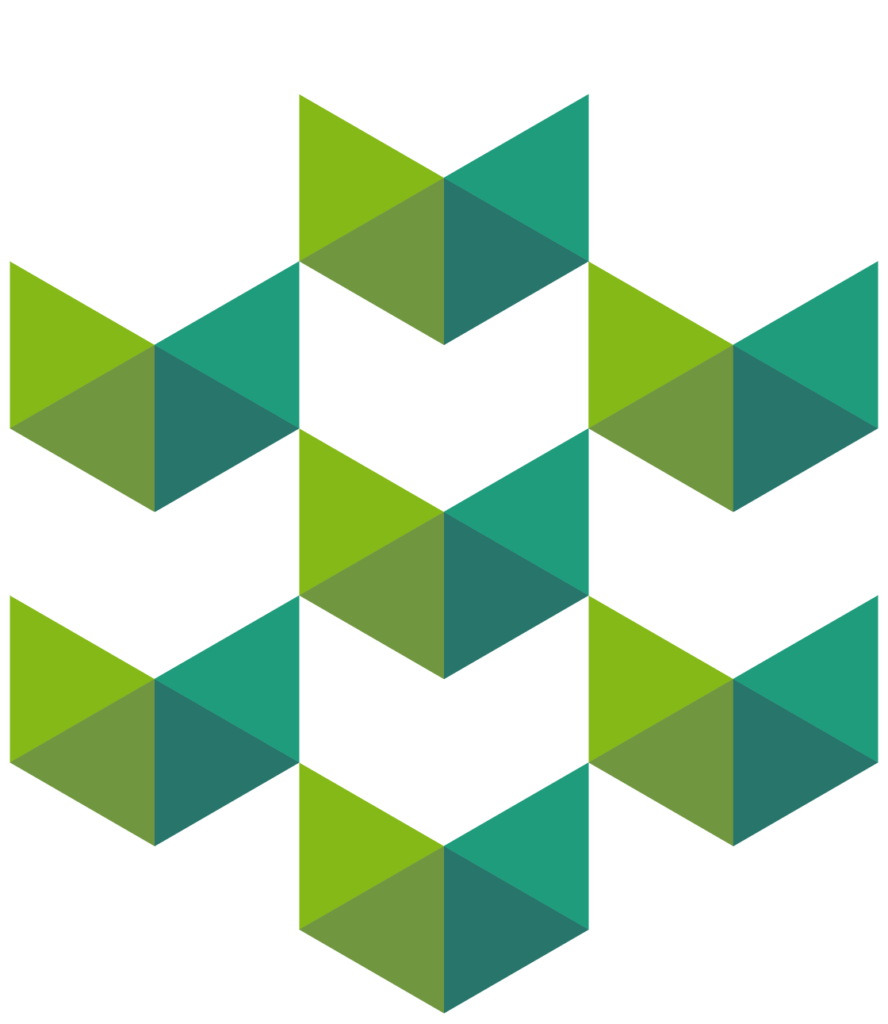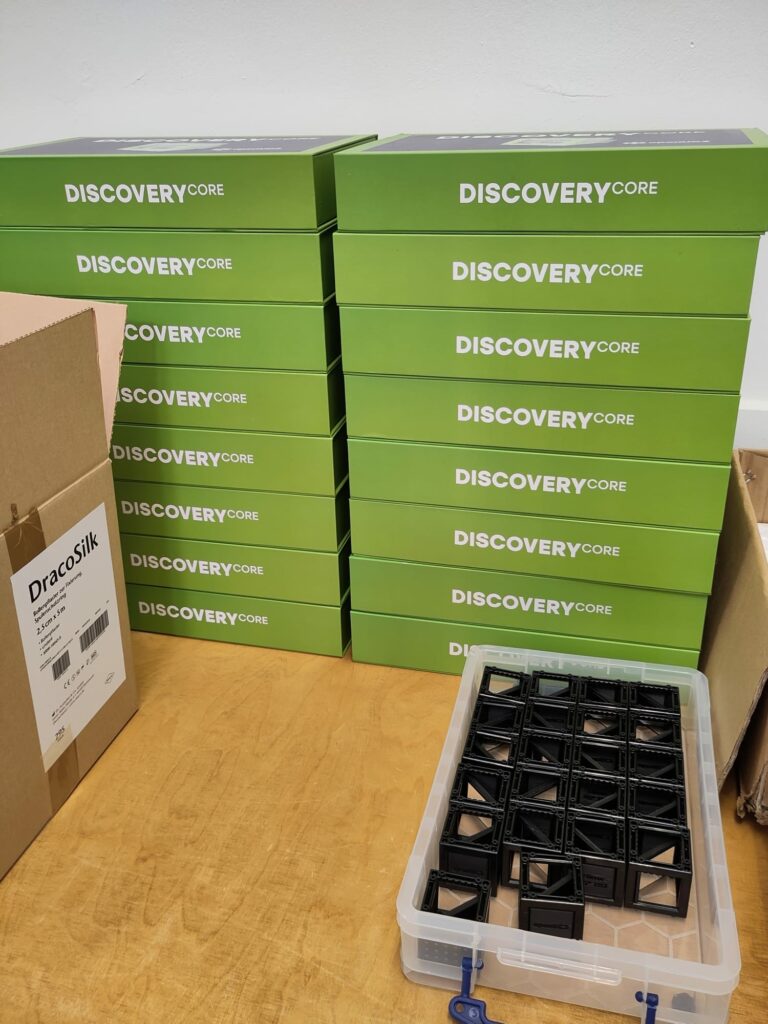
Our mission is to make optical research – from basic microscopy to quantum-physics experiments – modular, affordable and classroom-ready. Our first education-focused product, the Discovery Line, now rolls off the assembly tables of “WerkVol”, the inclusive workshop run by Evangelische Stiftung Volmarstein near Dortmund. Hurray! 🙂
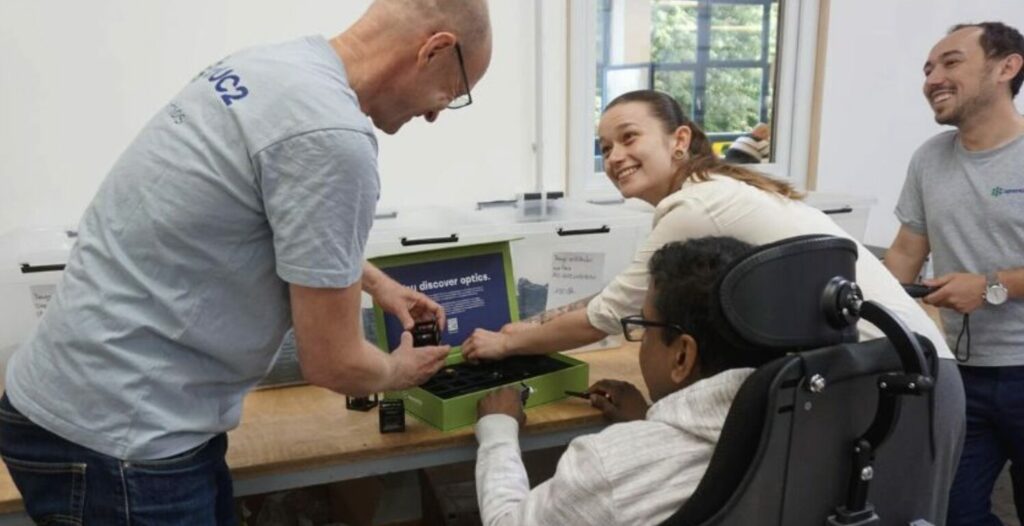
60+ precision parts, Lego-style simplicity
Project lead Armin Grundmann likes to prove the concept live: open the green box, click together a handful of black plastic cubes filled with lenses, mirrors and an eyepiece – “a bit like Lego,” he says—and within minutes a working microscope stands on the desk. A smartphone clamp lets students shoot digital images of their specimens.
Each kit contains more than sixty individual parts. Eight workshop employees with disabilities took on the full assembly: sorting tiny optics, checking tolerances “with kid gloves,” inserting foam protection and sealing the finished sub-assemblies in custom cartons.
A win-win for everyone
Volmarstein usually handles straightforward packaging work for local companies, explains workshop manager Andreas Barth. This time, we handed over a technically demanding task with real consequences if something went wrong. “Every mistake we make costs the young company money,” said Barth – pressure that created “positive tension” and pride on the shop floor.
The results speak for themselves: the first batch of 100 microscopes inside the coreBOXes left the workshop in July, production stations were spotless, and neatly stacked boxes of finished kits lined the shelves.
Feedback that flows both ways
Armin from the OpenUC2’s engineering team traveled to Volmarstein throughout the project. “Watching people who don’t know the product follow our instructions was eye-opening,” Grundmann says. The builders’ comments have already triggered tweaks to a handful of drawings for the next run.
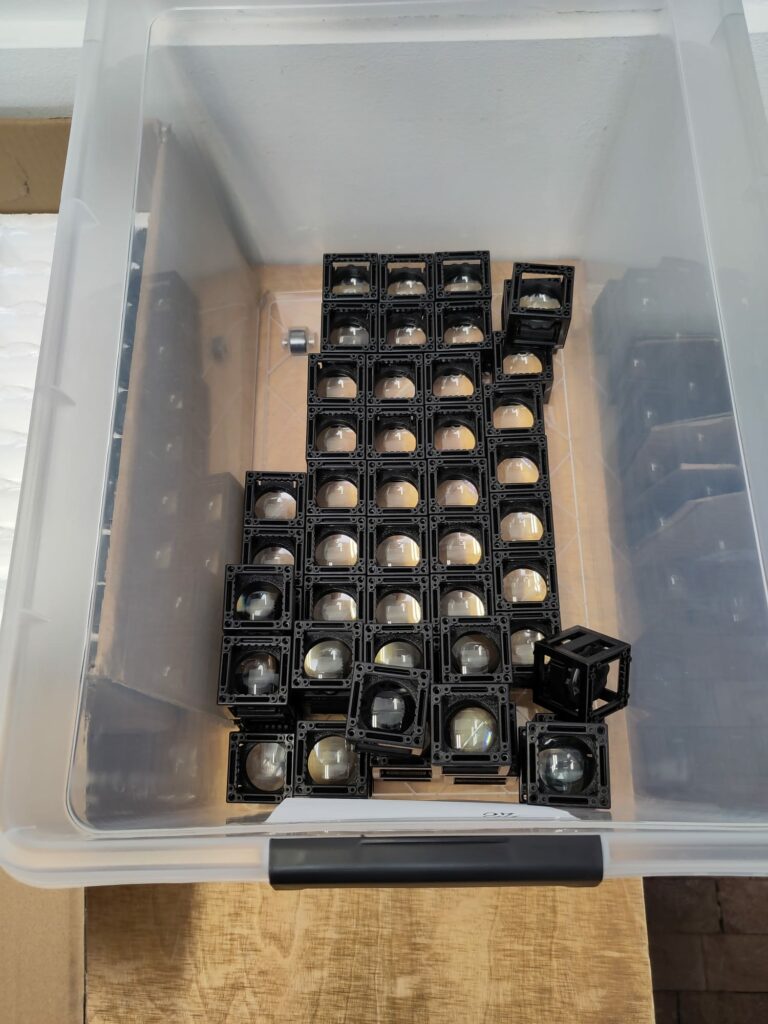
Sebastian Trampenau believes the collaboration embodies the start-up’s broader goal: inspiring tomorrow’s researchers. “Optical technology touches everything—cameras, medical devices, autonomous driving, high-speed internet,” he notes. “We have to spark curiosity now.”
Inclusion in action
We are equally enthusiastic about what people in Volmarstein learned. “Academic engineers meet people with disabilities – two worlds, one workshop,” Barth reflects. The project proves that complex, high-precision work and inclusive employment are not mutually exclusive. “Entrepreneurs can see what is possible when they give people with restrictions a real challenge,” Sebastian adds.
Next steps
With the maiden order complete, OpenUC2 is already weighing a follow-up contract – potentially a larger, more sophisticated optics set that would once again be built in Volmarstein. Both partners agree the first experiment was a success; the next iteration should be even better.
About WerkVol, Evangelische Stiftung Volmarstein
WerkVol provides employment and vocational training for people with disabilities, combining professional production standards with an inclusive work environment.
https://www.esv.de/angebote/arbeit/werkvol-teilhabe-an-arbeit

